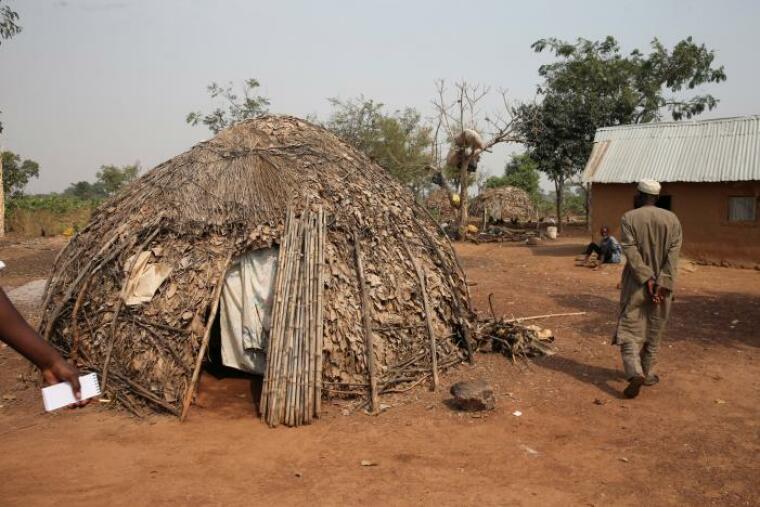Christian leaders in northern Nigeria slam government for failing to stop Fulani attacks

Christian leaders in northern Nigeria have criticized the federal government for its failure to stop Fulani herdsmen from attacking Christians in the region.
The latest attack on Christians came on Nov. 30, when armed Fulani herdsmen opened fire at a mining site in Jol village, in the Riyom Local Government Area of Plateau state, injuring at least four people.
World Watch Monitor reported that two Fulani herders were arrested in connection with the incident, prompting other herders to carry out more attacks against nearby miners.
Rev. Yakubu Pam, chairman of the Christian Association of Nigeria (CAN) in the northern region, said that the latest attack was "most unfortunate" and reiterated his calls for the government to protect the lives of all residents, whether Christian or non-Christian.
Solomon Dalyop, the leader of Church of Christ in Nations (COCIN) in the Riyom area, complained that there has been no improvement in the situation despite the increased military presence in the area. He alleged that soldiers have been engaged in conflicts with the locals rather than going after the attackers.
He also asserted that the soldiers are not committed to ending the violence because "their paymaster, the federal government, is only paying lip service without serious political will to end the crisis."
The recent attack has prompted Daniel Dem, the Member representing the Riyom constituency in the state House of Assembly, to advise villagers to protect themselves from assailants "since [the] government has shown a cold attitude towards arresting and prosecuting the Fulani, for reasons best known to [them]."
Since that time, the villagers were able to identify assailants in two separate attacks, and hand them over to the authorities.
However, Dem said that the situation is still "worrisome," because citizens should not have to resort to self-defense, as it could lead to a serious crisis and the breakdown of law and order.
Conflict between settled farmers, who are mostly Christian, and mainly Muslim Fulani Herdsmen is also taking place in the Middle Belt of Nigeria, which straddles the divide between the largely Muslim north and the majority-Christian south.
A report released by the International Crisis Group (ICG) in September has indicated that the response to the crisis at both federal and state levels has been poor.
"The government typically deploys the federally controlled police, and sometimes the army, to areas reporting attacks or clashes. These forces, poorly deployed in rural areas, often lack logistics for rapid response, especially across difficult terrain," the report noted.
The ICG also highlighted the lack of judicial action, noting that "[p]olice occasionally arrest and prosecute both herders and vigilantes bearing firearms, but relatively few perpetrators of violence face justice. Impunity has encouraged actors to take matters into their own hands."
 Christians don't have to affirm transgenderism, but they can’t express that view at work: tribunal
Christians don't have to affirm transgenderism, but they can’t express that view at work: tribunal Archaeology discovery: Medieval Christian prayer beads found on Holy Island
Archaeology discovery: Medieval Christian prayer beads found on Holy Island Presbyterian Church in America votes to leave National Association of Evangelicals
Presbyterian Church in America votes to leave National Association of Evangelicals Over 50 killed in 'vile and satanic' attack at Nigerian church on Pentecost Sunday
Over 50 killed in 'vile and satanic' attack at Nigerian church on Pentecost Sunday Ukrainian Orthodox Church severs ties with Moscow over Patriarch Kirill's support for Putin's war
Ukrainian Orthodox Church severs ties with Moscow over Patriarch Kirill's support for Putin's war Islamic State kills 20 Nigerian Christians as revenge for US airstrike
Islamic State kills 20 Nigerian Christians as revenge for US airstrike Man who served 33 years in prison for murder leads inmates to Christ
Man who served 33 years in prison for murder leads inmates to Christ


 Nigerian student beaten to death, body burned over ‘blasphemous’ WhatsApp message
Nigerian student beaten to death, body burned over ‘blasphemous’ WhatsApp message 'A new low': World reacts after Hong Kong arrests 90-year-old Cardinal Joseph Zen
'A new low': World reacts after Hong Kong arrests 90-year-old Cardinal Joseph Zen Iran sentences Christian man to 10 years in prison for hosting house church worship gathering
Iran sentences Christian man to 10 years in prison for hosting house church worship gathering French Guyana: Pastor shot dead, church set on fire after meeting delegation of Evangelicals
French Guyana: Pastor shot dead, church set on fire after meeting delegation of Evangelicals ‘Talking Jesus’ report finds only 6% of UK adults identify as practicing Christians
‘Talking Jesus’ report finds only 6% of UK adults identify as practicing Christians Mission Eurasia ministry center blown up in Ukraine, hundreds of Bibles destroyed: 'God will provide'
Mission Eurasia ministry center blown up in Ukraine, hundreds of Bibles destroyed: 'God will provide' Church holds service for first time after ISIS desecrated it 8 years ago
Church holds service for first time after ISIS desecrated it 8 years ago Burger King apologizes for 'offensive campaign' using Jesus' words at the Last Supper
Burger King apologizes for 'offensive campaign' using Jesus' words at the Last Supper Uganda: Muslims abduct teacher, burn him inside mosque for praying in Christ’s name
Uganda: Muslims abduct teacher, burn him inside mosque for praying in Christ’s name